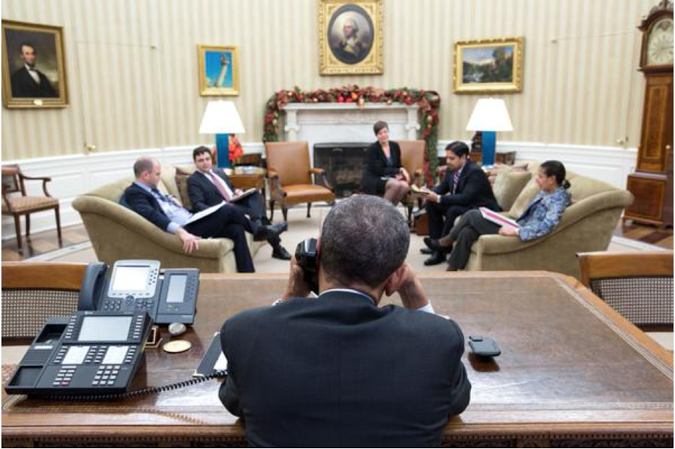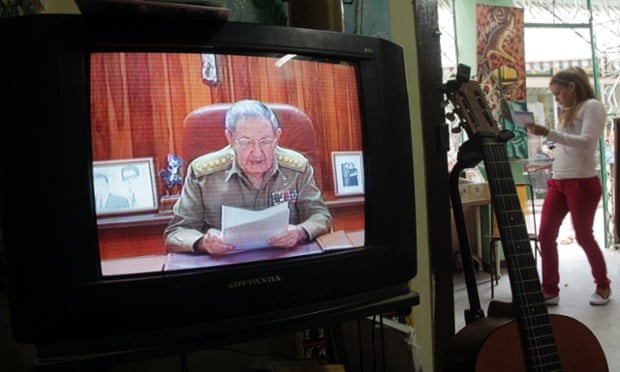While the Cold War ended over two decades ago, the
last major thorn in the US’ side is on track for a resolution. President Obama
announced jointly with President Raúl Castro the 90 miles of water separating their two countries is starting to thaw. The announcement restoring diplomatic relations between the US and Cuba as well as opening an embassy in Havana is a major change in US strategy. The decision also follows Obama’s desire to ease harsh relations with rogue nations in
exchange for political reform. The results of this changing U.S. policy will
play out and ultimately determine whether or not Obama’s plan was worth the
risk.

The timing seems ripe as the opinions of Cuban descendants
has turned against the decades old strategy still deeply rooted in the Cold
War mentality. This decision also comes after Obama’s push for a nuclear
agreement with Iran. While those talks continue without a resolution, the possibility
still exists despite Congressional disapproval. Here, once again, Congress is
outspoken against Obama’s leniency. However, this time it may very well be a vocal
minority within Congress since close to six
out of ten Americans favor re-establishing relations with Cuba. Even in
Miami the expected outrage and protests were minimal and quiet. The elite
opinion may not be able to direct the will of the people as politicians cling
to a fifty year old mentality and the public is ready to move on.
There are some legitimate concerns regarding the
details of the rapprochement as it is largely based on good faith. The fact
sheet issued by the White House strictly outlines only US actions and means
to improve relations and human rights in Cuba, but does not include any
specific actions to be taken by the Cuban government. All things considered
though it’s not a bad strategy to use the comforts of Western living to slowly
but surely bring Cuba into the fold. Republicans seem to prefer the hard line
approach in bringing countries like Russia, Iran and Cuba to their knees before
providing economic relief or incentives. While this approach broke the USSR and
ended the Cold War, it hasn’t quite succeeded elsewhere.
So why continue with a decades old strategy that
clearly isn’t appropriate in today’s world affairs? It’s largely been viewed
that the old Cold War mentality needs to be shelved after 9/11. There is little
to be gained politically or economically by clinging to this vestige of
theoretical dichotomy. Yes, the plan is less than formal, and unlike the Iranian
talks there is no mention of U.S. wrath should Cuba fail to live up to its
promises. The alternative is less than desirable though as nothing has been
achieved. It’s rather like the definition of insanity where you continue repeating
an action expecting the result to change.
The outcome of reengaging Cuba will be fascinating as it
unfolds bringing the Cold War into the 21st Century and hopefully
the Cuban population with it. The change in Cuba will be incremental and Obama’s
decision cannot be judged fully for many years to come. Obama will be slightly
crunched for time as his tenure comes to an end and will have to use executive
authority to force the continued development of relations with Cuba. While it
would be wise to tread softly and slowly with Castro and play a little tit for
tat to ensure reform and change is forthcoming in Cuba in exchange for economic
relief.

In the meantime the U.S. will expose Cubans to the American
way as travel and exports increase to the island. Communications systems will
expand with the support
and aid of the U.S. as well as promoting human rights. Not only will this
improve trade and relations between the two nations, it will also support U.S.
relations and trade with Latin America overall. And let’s not forget the most
important result of improved diplomatic relations, legalizing Cuban cigars.

1 comment:
Such post
Many cigar
Very excite
Wow
Post a Comment